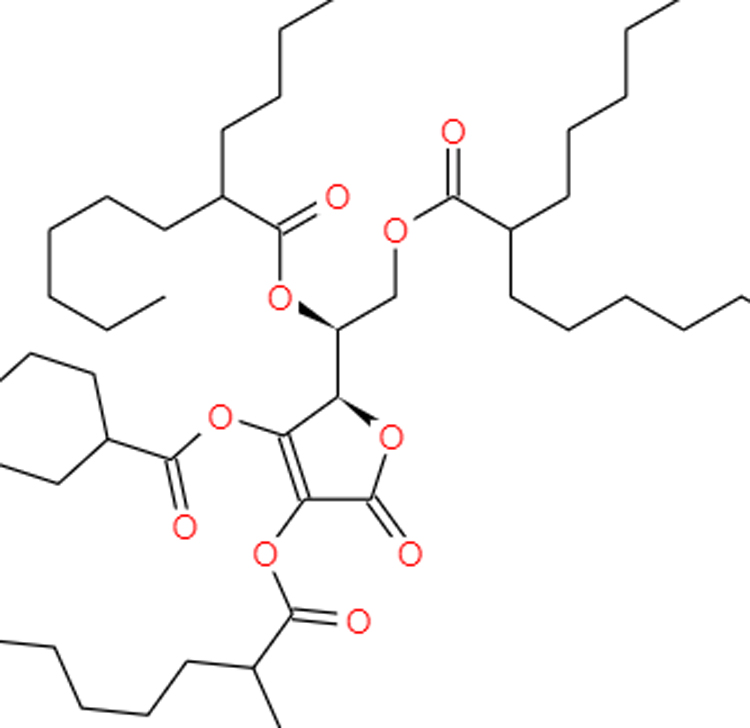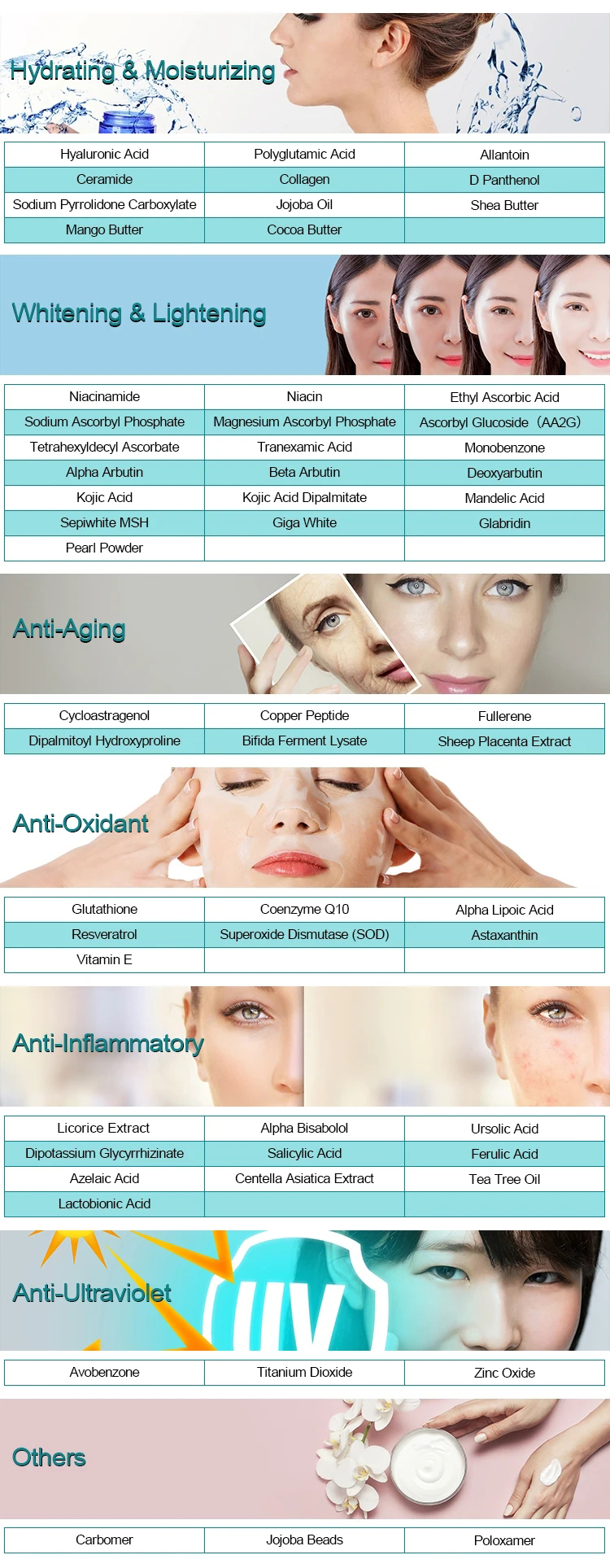Tetrahexyldecyl Ascorbate is a derivative of ascorbic acid (vitamin C) commonly used in skincare products due to its stability and skin-penetrating properties. Here’s information on its chemical structure and physical properties:
Chemical Structure of Tetrahexyldecyl Ascorbate:
Tetrahexyldecyl Ascorbate is an ester formed by the reaction of ascorbic acid with hexyldecanol. Its chemical formula is C30H52O3. The esterification process enhances its stability and lipid solubility.
Physical Properties of Tetrahexyldecyl Ascorbate:
1.Appearance: Tetrahexyldecyl Ascorbate is typically a clear to pale yellow liquid.
2.Odor: It may have a slight odor, but it is generally odorless.
3.Solubility: It is soluble in oils and fats, making it suitable for oil-based formulations in skincare products.
4.Melting Point/Freezing Point: As a liquid, it doesn’t have a distinct melting point.
5.Boiling Point: The boiling point can vary based on factors such as atmospheric pressure.
6.Stability: Tetrahexyldecyl Ascorbate is known for its stability compared to pure ascorbic acid, which is prone to oxidation.
7.Absorption: It is absorbed well by the skin, and its lipid solubility allows it to penetrate the skin’s barrier more effectively.

Use in Skincare of Tetrahexyldecyl Ascorbate:
Tetrahexyldecyl Ascorbate is often included in skincare formulations for its antioxidant properties and potential benefits for skin health. It is believed to help with collagen synthesis, brightening skin tone, and protecting against environmental damage.
Always refer to specific product labels for detailed information on concentration and usage instructions. If you have any skin concerns or conditions, it’s advisable to consult with a dermatologist before using products containing Tetrahexyldecyl Ascorbate.
Application of Tetrahexyldecyl Ascorbate
Tetrahexyldecyl Ascorbate is a derivative of Vitamin C and is commonly used in skincare products. It is an oil-soluble form of Vitamin C, which makes it more stable and suitable for formulations that require oil-based ingredients. Here are some key applications of Tetrahexyldecyl Ascorbate in skincare:
Antioxidant Properties: Like Vitamin C, Tetrahexyldecyl Ascorbate has antioxidant properties. It helps neutralize free radicals, which can contribute to premature aging and skin damage caused by environmental factors such as UV radiation and pollution.
Brightening and Even Skin Tone: Tetrahexyldecyl Ascorbate is known for its skin-brightening effects. It can help reduce the appearance of hyperpigmentation and uneven skin tone, promoting a more radiant complexion.
Collagen Synthesis: Vitamin C is essential for collagen synthesis, and Tetrahexyldecyl Ascorbate shares this property. Collagen is a protein that plays a crucial role in maintaining skin elasticity and firmness.
Anti-Aging: Due to its ability to stimulate collagen production and protect against oxidative stress, Tetrahexyldecyl Ascorbate is often included in anti-aging skincare formulations. It may help reduce the appearance of fine lines and wrinkles.

Stability in Formulations: One advantage of Tetrahexyldecyl Ascorbate is its stability. Unlike some other forms of Vitamin C, it is less prone to oxidation, making it suitable for formulations with a longer shelf life.
Oil-Based Formulations: Tetrahexyldecyl Ascorbate is lipid-soluble, making it compatible with oil-based skincare products. This allows for better penetration into the skin and enhanced efficacy.
Combination with Other Ingredients: It can be combined with other skincare ingredients, such as alpha hydroxy acids (AHAs) or retinoids, to create comprehensive formulations that address multiple skin concerns.
It’s important to note that individual reactions to skincare ingredients can vary, and it’s advisable to perform a patch test before using products containing Tetrahexyldecyl Ascorbate, especially for individuals with sensitive skin. Additionally, consulting with a dermatologist or skincare professional can help determine the most suitable products for specific skin concerns.
